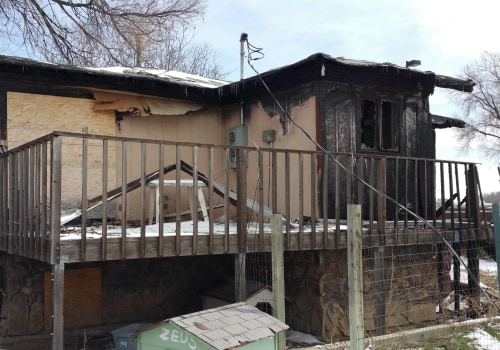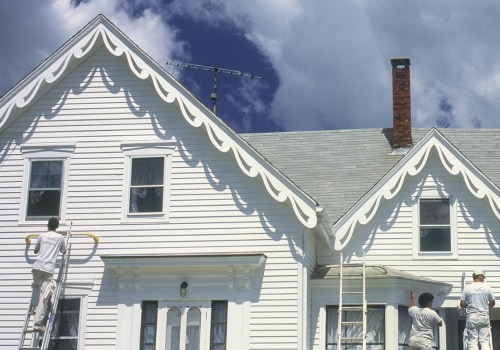House flipping has gained popularity as a lucrative investment strategy where investors purchase properties, renovate them, and sell for a profit. The potential earnings for a house flipper can vary significantly based on experience, market conditions, property type, and investment strategies. Understanding the income potential for house flippers requires examining the different factors influencing profits, such as location, renovation costs, and the investor's ability to manage budgets and timelines effectively.
Average Annual Income of House Flippers
For a beginner house flipper, annual earnings can range widely. On average, a novice flipper might earn between $30,000 and $50,000 per year if they successfully flip one or two properties. This income typically reflects properties with moderate renovations in mid-range markets. However, seasoned flippers often aim to complete several projects per year, which can increase their annual income substantially. Experienced flippers who handle high-value properties in competitive markets or specialize in extensive luxury renovations may see yearly earnings surpassing $100,000 or more. For example, a flipper working in high-demand areas like Los Angeles, New York, or Miami may generate a higher profit per property due to the market’s property values and demand.
Factors Impacting House Flipping Profits
The actual income of a house flipper depends heavily on several variables, including the location of the property, the initial purchase price, renovation costs, and the ability to sell quickly at a profitable price. High-demand urban areas or neighborhoods with rising property values often offer better returns but come with higher initial purchase costs. Renovation costs also impact profits significantly; successful flippers can manage these costs by partnering with reliable contractors or overseeing the work themselves to stay on budget. Market conditions further affect income—when housing prices are rising, flippers can often secure better returns on their investments. Alternatively, in a slow market, properties may take longer to sell, potentially reducing profits.
The Cost of Renovations and Profit Margins
On average, flippers aim for a profit margin of about 10-20% per property. For instance, if a property costs $200,000 and requires $50,000 in renovations, a flipper may hope to sell it for around $300,000, resulting in a $50,000 profit. This approach emphasizes the importance of balancing renovation costs with the resale potential of the property. In competitive markets, successful flippers focus on cosmetic upgrades and essential repairs that enhance a home’s appeal without overspending on unnecessary luxuries. By strategically choosing upgrades, such as updating kitchens, bathrooms, and curb appeal, flippers can keep expenses manageable while adding considerable resale value to the home.
Location and Market Dynamics
Geographical location plays a vital role in determining potential income. For example, flipping properties in high-cost areas like California can yield substantial returns due to elevated property values. In this context, working with professionals like socalcashhomebuyer.com can streamline the process, providing investors with market insights and resources tailored to California’s real estate climate. Markets in states like California, where housing demand remains consistently high, present numerous opportunities for both novice and experienced flippers to achieve significant returns.
The Role of Experience and Strategy
Experience greatly influences a flipper’s annual income. Experienced flippers know how to identify profitable properties, negotiate favorable purchase prices, manage renovations efficiently, and price properties competitively for a quick sale. They are also skilled in navigating fluctuating market conditions, allowing them to maximize profits even in challenging economic climates. Flippers with experience in specific property types, such as single-family homes, luxury condos, or distressed properties, may also leverage niche markets for higher earnings. Additionally, investors who adopt a strategic approach, such as focusing on energy-efficient renovations or properties in up-and-coming neighborhoods, can capitalize on trends and increase their profit margins.
Potential Risks and Income Variability
House flipping comes with financial risks, and income is not guaranteed. Unexpected renovation costs, delays, or market downturns can reduce profits or lead to losses. For instance, extensive structural repairs can increase costs beyond initial estimates, eating into the expected profit. Additionally, if a property takes longer to sell, holding costs such as taxes, utilities, and loan payments can accumulate, impacting overall earnings. Some flippers mitigate these risks by securing multiple financing options, working with experienced contractors, or focusing on properties in markets with high turnover rates. Understanding and planning for these risks is crucial for flippers to maintain stable income levels year over year.
Conclusion
The income a house flipper can make annually varies widely based on location, experience, and the number of properties flipped each year. While beginners might earn around $30,000 to $50,000 from a few modest projects, experienced flippers in lucrative markets can exceed $100,000 or more. Factors like market dynamics, renovation costs, and effective property management are critical to achieving consistent, profitable returns. By carefully choosing markets, managing renovations, and aligning with local experts, house flippers can optimize their income potential and navigate the complexities of real estate investment with confidence.



